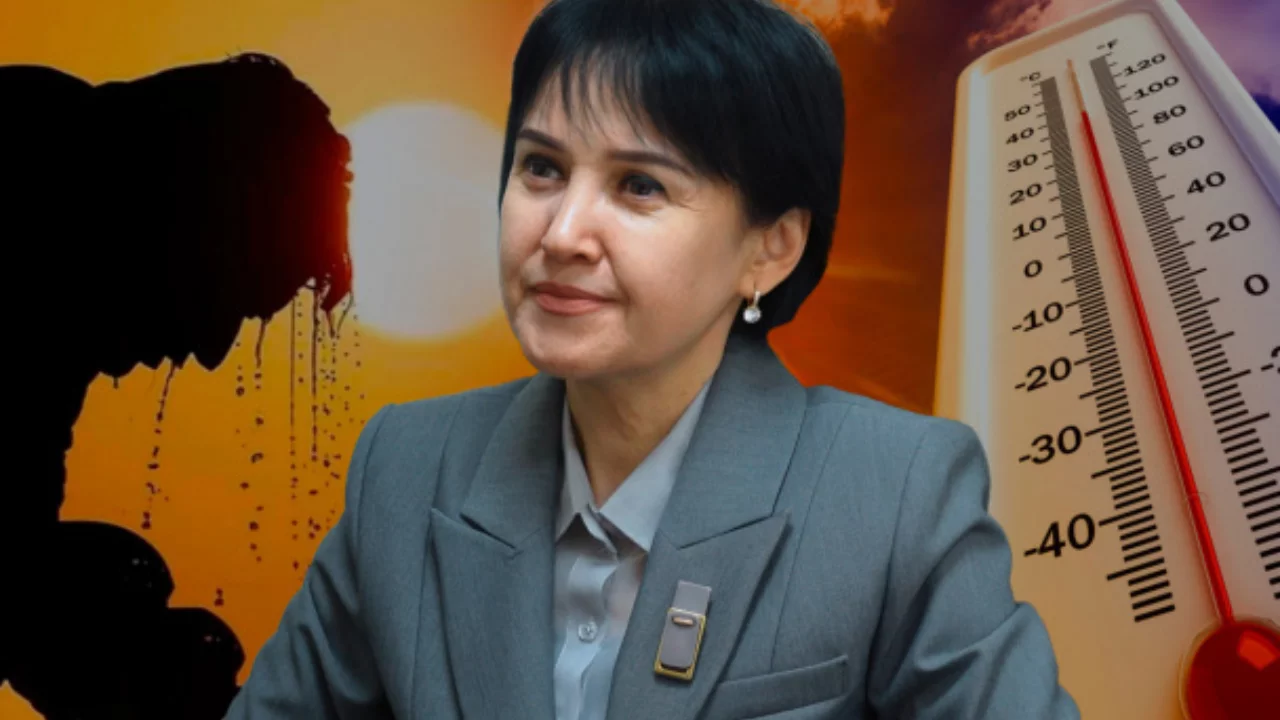Even in 40-degree heat, an employee is not without rights, you know?

With the arrival of summer in Uzbekistan, the issue of employee safety due to high temperatures at workplaces is once again on the agenda. Especially working in 40-degree heat is not only difficult, but also a serious health hazard.
As stated by Nodira Ghoibnazarova, a representative of the Federation of Trade Unions, Article 205 of the Labor Code clearly states: workers employed in open air or in dirty, cold, or hot rooms must be provided with special breaks. She emphasized that these standards must be strictly implemented.
In particular, this article refers to workers involved in loading and unloading or those working in natural climate conditions. They are considered a “special category” for which reduced working hours, specific rest procedures, and even special solutions must be provided.
For example, bakers, metallurgists, or transport workers who operate in the most difficult conditions fall under this category. They are forced to fight against the heat every day.
The new version of the code also provides breaks of 30 minutes to 2 hours. If the working day exceeds 8 hours — two breaks; if it is up to 8 hours — one break. Agreement between trade unions and employers plays a key role here.
Moreover, the Labor Code accounts for work in the fields and early morning hours: for example, in hot weather, workers can work from 04:00 to 08:00 and again after sunset, while resting during the hottest hours — from 12:00 to 16:00.
But that’s not all. A new draft law “On Occupational Safety” also includes additional opportunities to improve working conditions during extreme heat or cold, including:
– Granting additional leave
– Reducing working hours
– Providing water, juice, and food
– Fines from 5 to 15 times the base calculation value for employers who fail to meet standards
Most importantly, if working conditions pose a threat to an employee’s life or health, they have the right to refuse to work. In such cases, wages will be preserved and no disciplinary actions may be taken.
Looking at international practices, countries like Belarus and Germany pay special attention to this matter. In Belarus, if the temperature reaches 28.5°C, an employee can leave work without informing their supervisor. In Germany, even schools may be closed, and working days may be canceled.
It’s time for Uzbekistan to implement such clear and strict protections for employee interests in practice.
Experts are also offering health advice for hot weather. According to Professor Zarifboy Ibadullaev:
– Drink at least 2–3 liters of water
– Wear white clothing and avoid short, open garments
– Avoid working under direct sun from 13:00 to 16:00
– Eat ice cream and drink fruit juices
– If signs of heatstroke appear — move the person to shade and spray cold water on the face
The professor emphasized the need to increase the number of shaded areas, swimming pools, and infrastructure promoting a healthy lifestyle in the country.
In conclusion: working in 40-degree heat is no easy task, and from a human rights perspective, it is a matter of labor protection. Every employer must be aware of this and treat employees humanely. Because the worker is the heart of labor resources. Their health is a vital factor for the stability of both the economy and society. Read “Zamin” on Telegram!
Ctrl
Enter
Found a mistake?
Select the phrase and press Ctrl+Enter 




















